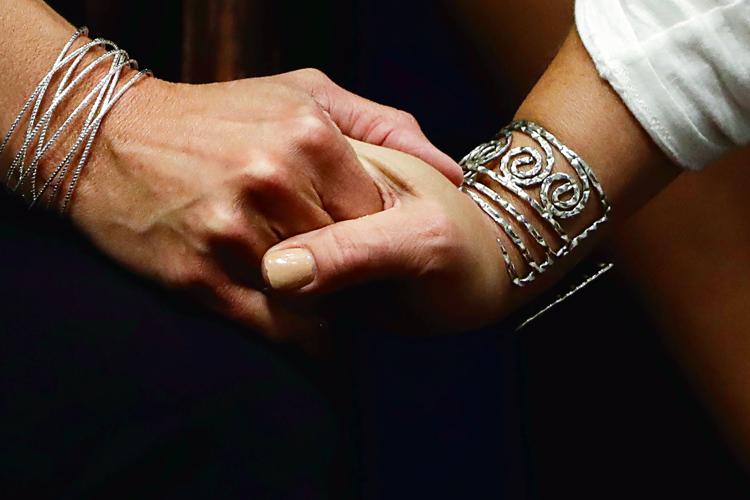Lawmaker Calls for Constitutional Amendment to Help Victims of Clerical Abuse
By John Finnerty
A Republican lawmaker has introduced legislation that would give voters the chance to change the state Constitution and allow victims of expired child sex abuse cases to sue their abusers and institutions that may have covered up the crimes even if the statute of limitations has expired. Blair County freshman State Rep. Jim Gregory's legislation, if passed, would put a Constitutional amendment ballot question before voters as soon as 2021. Critics of the proposal say that's not soon enough. The move could end an impasse at the Capitol over questions of whether the General Assembly can legally change the law to allow the Catholic Church, and other organizations to be sued in civil court if the existing statute of limitations have expired. The issue of changing the law to help victims has become a lightning rod topic at the Capitol in the wake of revelations in a statewide grand jury report released last August that 300 priests had abused 1,000 victims over decades. The state House in September voted 171-23 to pass legislation that would have allowed victims of old child sex crimes to file lawsuits, but the measure died in the Senate. Senate Republican leaders and church officials have questioned whether the state Constitution would allow the change. Most advocates for changing the law agree that it would be illegal to change the criminal statute of limitations retroactively, but say that changing the civil law to allow for lawsuits should be OK. Marci Hamilton, president and CEO of Child USA, has been one of the leading proponents for changing the law to allow for lawsuits. Monday, she was in Hartford, where a Connecticut legislative committee was holding a hearing on a bill that would open a 26-month window for victims of child sex abuse to file lawsuits in that state. Hamilton said that the move to pass a Constitutional amendment will take too long. “It is a minimum 3-4 year process and rarely successful,” she said. Hamilton lambasted Gregory’s proposal as a “betrayal of the victims.” But Gregorymaintained that because of the uncertainty over the legality of changing the law without amending the Constitution, this route would be quicker than the alternative. “The Constitutional amendment is what will give victims real hope instead of the false hope” that’s come from previous efforts to change the law, Gregory said. He said that legal challenges that would follow any legislation that doesn’t involve changing the Constitution would drag on for a decade “without any assurance that victims’ concerns and trauma will be compensated.” Gregory’s proposal has the support of state Rep. Mark Rozzi, D-Berks County, who has been the legislative champion for reforming the law to help victims sue the church. The House judiciary committee has scheduled a meeting to consider Gregory’s legislation on Monday, he said. House Republican leaders said that Gregory’s Constitutional amendment proposal will be one of a 15 bills dealing with the rights of victims they expect to debate this month. “Making sure our kids are protected and those who would harm them held accountable is one of the continuing priorities of our members,” said state Rep. Donna Oberlander, R-Clarion County. As Hamilton noted, passing Constitutional amendments is not an easy process, said G. Terry Madonna, a political science professor at Franklin and Marshall College. “The problem is the process, amending the Constitution is tough. They made it that way intentionally,” he said. Madonna said that amending the Constitution is complicated process so that any change only happens after there’s been sufficient deliberation on the need for it. To get an amendment ballot question before voters, the Legislature must pass the same authorizing legislation in two consecutive legislative sessions. That means, the measure would need to pass in the General Assembly again in 2021 if it passes this year, before the question would be put before the voters. Lawmakers have regularly debated possible Constitutional amendments in recent years, but the last successful change to the state Constitution was 16 years ago, according to the Pennsylvania Legislative Reference Bureau. In 2003, the state Constitution was amended to clarify the rights of those accused of crimes.
|
.
Any original material on these pages is copyright © BishopAccountability.org 2004. Reproduce freely with attribution.
